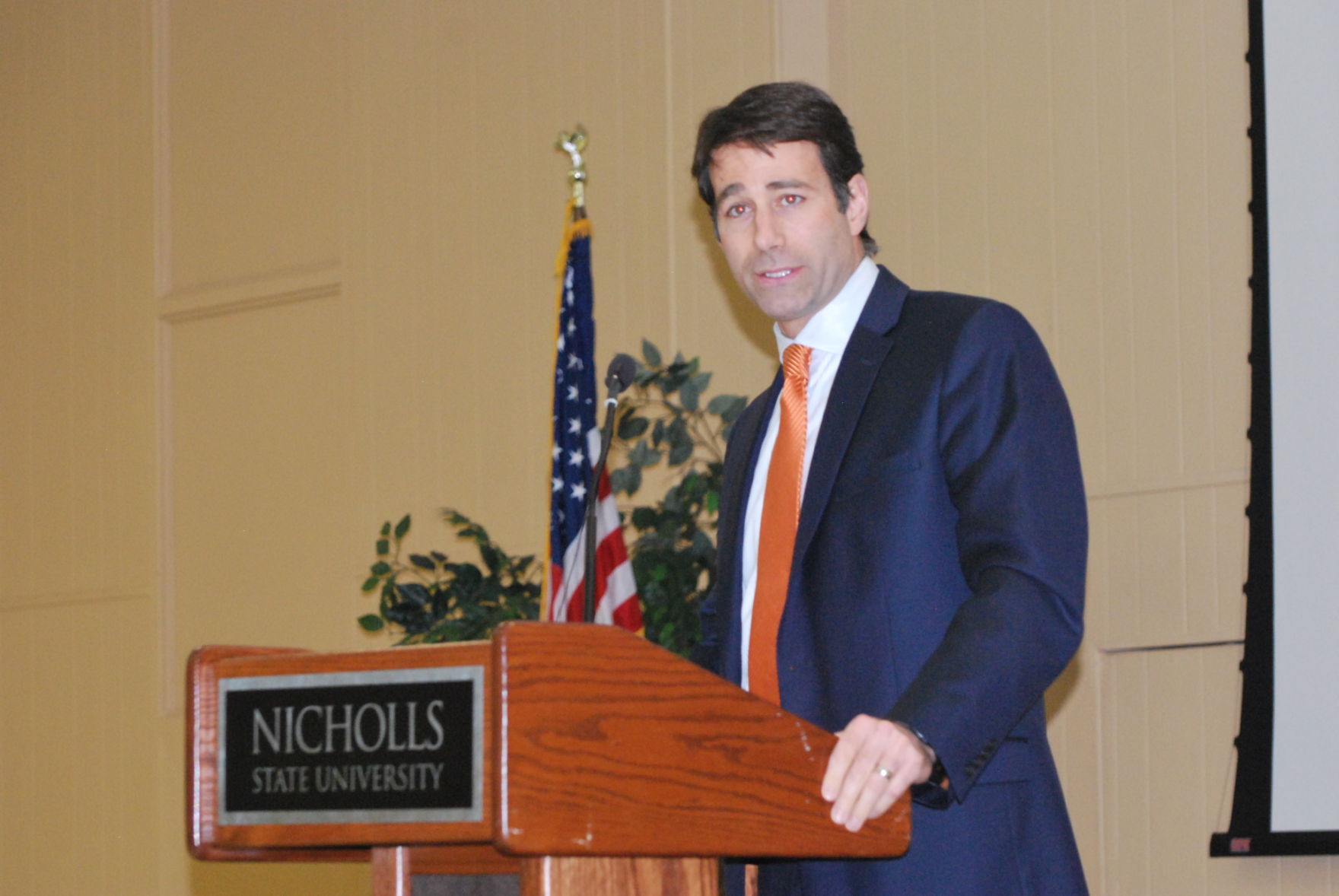
Graves talks coastal restoration challenges
April 7, 2015Fiddling with the law
April 7, 2015Our state has a problem. It’s an issue that many people already know about, but very few have been comfortable taking action toward because its teeth won’t be felt until decades far into the future. To this point, it’s sort-of just been easier to ignore its existence and kick the can down the road.
You see, that’s because this is an issue that will cost billions and billions of dollars to fix – all spread throughout decades of work. Being a politician in today’s 24/7 tornado-like news cycle puts a lot of emphasis on today and pleasing voters right now. Because of that, it’s been difficult to find non-local lawmakers to latch onto this issue and to champion the cause.
But more importantly than it all, it’s a problem that, if not remedied, will alter the landscape of Louisiana history forever. That isn’t opinion fodder. That is fact that has been backed up by countless scientists throughout the country who’ve conducted experiments on the topic.
Of course, the problem we’re talking about is coastal erosion – the silent killer that eats acreage of our already-depleted coastline each day.
The numbers vary depending on which study one chooses as gospel, but the facts are undisputable.
Over the past several decades, our “boot” has lost a lot of its sole, as countless miles of shoreline have been washed away.
Lots of work has been done to remedy the problem, and progress has indeed been made toward getting the nation’s attention regarding Louisiana’s silent killer.
But there is still room yet for more to be done and now is the time that we holler as loud as we can toward bringing this problem to light.
It’s at the point right now to where a failure to do so just might bring us to a point of no return – a time where we can’t recover from the damages that have already been done.
Our state has already taken a beating by this phenomenon.
According to a study conducted by the U.S. Geological Survey in 2011, our coastline shrinks at a rate of 16.57 square miles per year.
Breaking down those numbers per hour would indicate that we lose a football field of coastline every hour.
60 minutes. 100 yards gone.
That adds up in a big way.
Here’s a comparison that might make it make a little more sense.
The same U.S. Geological Survey said that from 1932 to 2010, the state lost 1,883 square miles of land. That area is as large as the entire state of Delaware.
The problem is called a silent killer because a lot of the area that’s shrinking is uninhabited marshland, so it’s sometimes thought that it’s a small-scale issue because people aren’t directly impacted.
But as we lose more and more, the impacts begin to be felt close to home in a giant way.
For starters, the loss of coastline means that we aren’t as safe as we once were during hurricane season.
With a large barrier of marsh once protecting our shore, we were once free of a lot of the impacts that come with the storm surge associated with storms.
With that barrier gone, it’s like a band-aid being removed from a wound. Our protection is gone and any direct hit that we take in the future will push water (AKA danger) closer and closer to where folks do live – meaning that we are more at risk than we once were.
So now is the time for our local leaders to step up so that we can make a push to get things rolling.
U.S. Rep. Garret Graves spoke locally this past week and said that one of the biggest challenges this area faces is protection of the coast.
Other local leaders have also done a lot of legwork toward the issues and have helped to make strides to ensure that this silent killer comes to light.
This is exactly the type of dedication and leadership that we need to make sure that our state has a prosperous future – one where we can maintain our current title as one of the happiest places in the country.
Sure, the oilfield is great. But without land for our people to stand, we have nothing.
If we lose any more of it to the Gulf, we might be fighting a losing battle.










